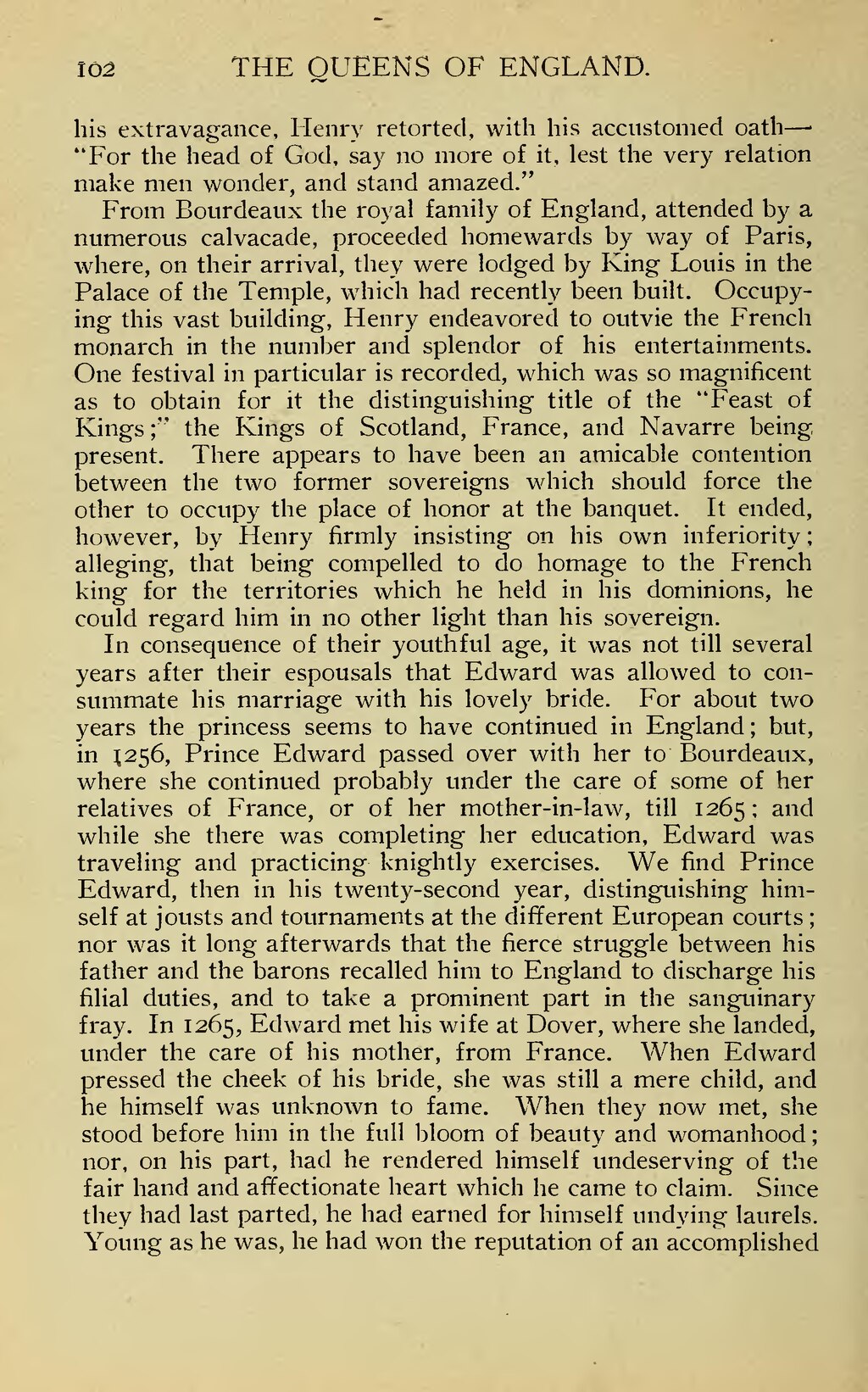102 THE QUEENS OF ENGLAND. his extravagance, Henry retorted, with his accustomed oath — ■ "For the head of God, say no more of it, lest the very relation make men wonder, and stand amazed." From Bourdeaux the royal family of England, attended by a numerous calvacade, proceeded homewards by way of Paris, where, on their arrival, they were lodged by King Louis in the Palace of the Temple, which had recently been built. Occupy- ing this vast building, Henry endeavored to outvie the French monarch in the number and splendor of his entertainments. One festival in particular is recorded, which was so magnificent as to obtain for it the distinguishing title of the "Feast of Kings ;" the Kings of Scotland, France, and Navarre being present. There appears to have been an amicable contention between the two former sovereigns which should force the other to occupy the place of honor at the banquet. It ended, however, by Henry firmly insisting on his own inferiority ; alleging, that being compelled to do homage to the French king for the territories which he held in his dominions, he could regard him in no other light than his sovereign. In consequence of their youthful age, it was not till several years after their espousals that Edward was allowed to con- summate his marriage with his lovely bride. For about two years the princess seems to have continued in England ; but, in 1256, Prince Edward passed over with her to Bourdeaux, where she continued probably under the care of some of her relatives of France, or of her mother-in-law, till 1265 ; and while she there was completing her education, Edward was traveling and practicing knightly exercises. We find Prince Edward, then in his twenty-second year, distinguishing him- self at jousts and tournaments at the different European courts ; nor was it long afterwards that the fierce struggle between his father and the barons recalled him to England to discharge his filial duties, and to take a prominent part in the sanguinary fray. In 1265, Edward met his wife at Dover, where she landed, under the care of his mother, from France. When Edward pressed the cheek of his bride, she was still a mere child, and he himself was unknown to fame. When they now met, she stood before him in the full bloom of beauty and womanhood ; nor, on his part, had he rendered himself undeserving of the fair hand and affectionate heart which he came to claim. Since they had last parted, he had earned for himself undying laurels. Young as he was, he had won the reputation of an accomplished
Page:The Queens of England.djvu/122
This page needs to be proofread.
